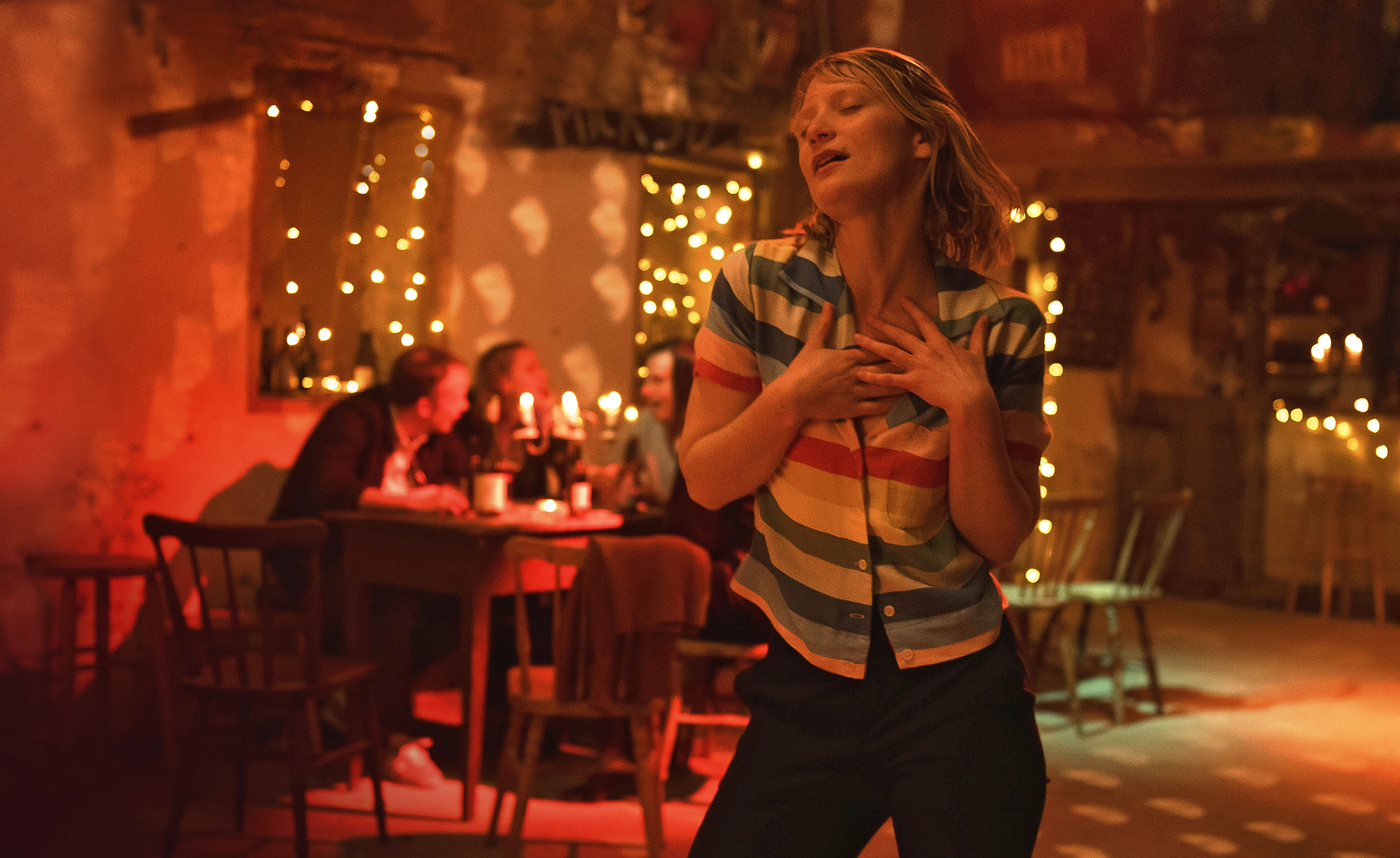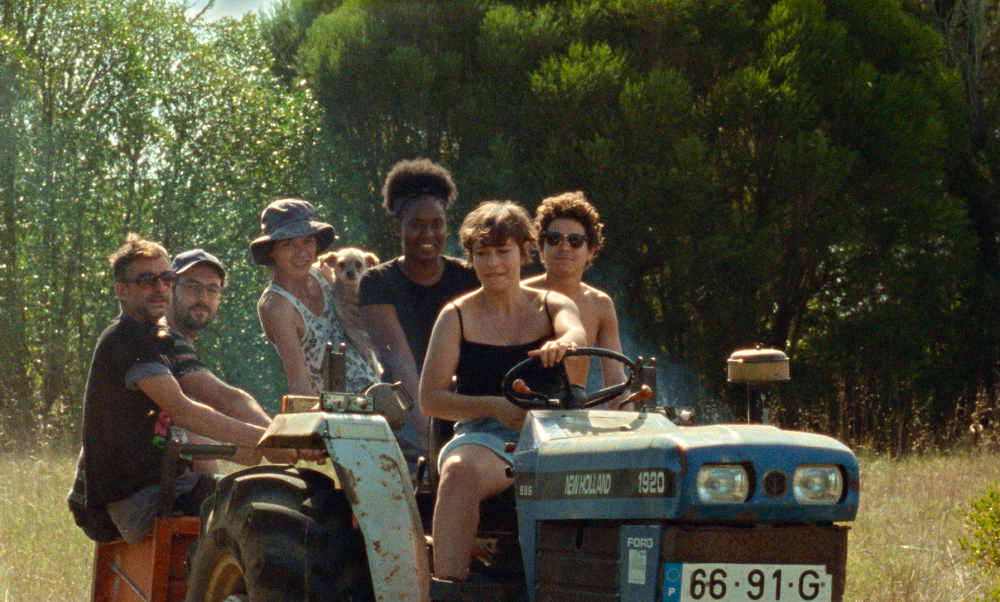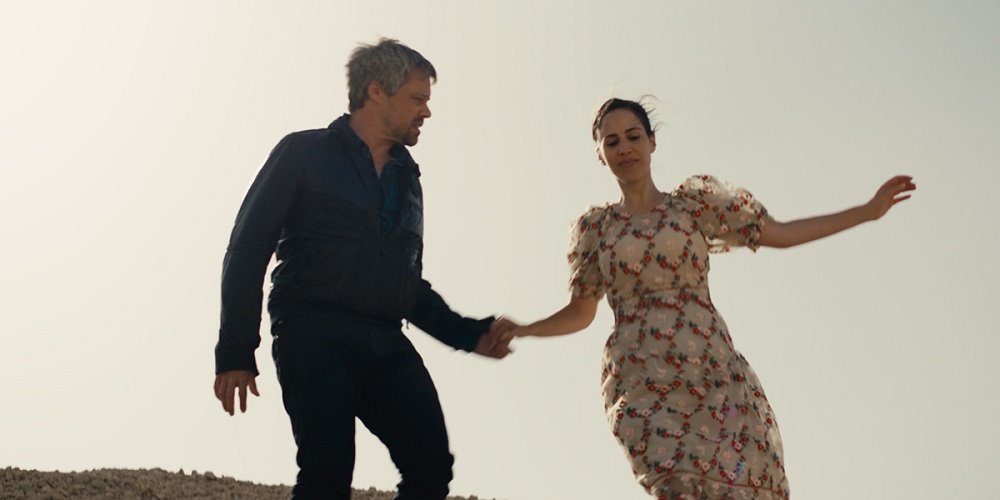Bright cinema that explores artistic creation
Seville, 27 September 2021.- Mia Hansen-Løve, Nadav Lapid, Andrea Arnold, Miguel Gomes, Maureen Fazendeiro, Jonas Carpignano, Aleksandre Koberidze, Sebastian Meise and Clio Barnard are some auteurs of the best contemporary filmmaking to compete for the Giraldillo de Oro, the main award of the event, in this eighteenth edition of the Seville European Film Festival, to be held from the 5th to the 13th of November.
This list reinforces, once again, the SEFF as a window for the Spanish premiere of major and relevant European productions by the most promising directors of the moment. Likewise, it maintains untouched its commitment to serve as an instrument to showcase the best European cinema, working to foster the formation of a critical and demanding audience while serving as a meeting point for creators, spectators and industry professionals.
The Official Section of the competition in this eighteenth edition is known for its selection of both luminous films, in a certain sense humanist works that emerge as a true hymn to life, and projects revolving around stories of condemnation and political commitment.

Bergman's Island, by Mia Hansen-Løve
Prominent among these glowing titles, emerging in contrast to those months of uncertainty, is Bergman's Island by the French director Mia Hansen-Løve, set on the small Swedish island of Fårö, the place where the author of Wild Strawberries retired. Starring Vicky Krieps (star of Phantom Thread), Tim Roth and Mia Wasikowska, the film travels through the places inhabited by the great Swedish filmmaker while exploring the complexity of artistic creation.
Filmmaking is also the axis on which The Tsugua Diaries pivots. Together with Maureen Fazendeiro, Miguel Gomes (Silver Giraldillo in 2015 for Arabian Nights) presents one of the few films in competition that openly takes place in the context of the pandemic distilling the urgency and existential debate of these times. Playing with the limits between reality and fiction, the film is born with the purpose of portraying the living conditions of a film crew in a big summer house after having gone through the mandatory health protocols.

The Tsugua Diaries, by Miguel Gomes and Maureen Fazendeiro,
Chance as the origin of love and the fortuitous union of souls form the core of Aleksandre Koberidze's What Do We See When We Look At The Sky?, winner of the Fipresci international critics' prize at the last Berlinale. Boasting a lively atmosphere, Koberidze's second feature film stands out as a true hymn celebrating life as it captures the charm of everyday life in the Georgian city of Kutaisi.
British director Clio Barnard, who won Best Screenplay at the Seville European Film Festival in 2013 for Selfish Giant, also explores emotional cinema in her new film Ali & Ava. The British director focuses on how love is born and built between two people who come from broken relationships. Longing, passion and rediscovered complicity are the protagonists of this story, screened at the Cannes Directors' Fortnight. The music, or rather the respective musical tastes of each of the lovers, is the main player in a story that is told to the rhythm of disco, punk, soul, folk and traditional music.
This enthusiastic spirit contrasts with other titles marked by political activism and condemnation of the realities that plague contemporary society: censorship, homophobia or anthropocentrism, as in the case of Ahed's Knee, by the Israeli Navad Lapid. Awarded at the Seville European Film Festival for titles such as The Kindergarten Teacher and Synonyms, the director continues his disaffection affair with his native country in this self-fictional film, recognised with the Jury Prize at Cannes. Here, Lapid uses a visceral and subversive formal language to denounce the artistic censorship that weighs on contemporary Israeli society.

Ahed’s Knee, by Navad Lapid
After Mediterraneo (2015), about immigration, and A Ciambra (2017), about gypsies, Jonas Carpignano brings his trilogy to a close with A Chiara, portraying today's Italy. In his latest work, he focuses on the mafia and how to survive it, and does so from the point of view of a 15-year-old girl who gradually discovers the tenacity and courage of her family, particularly her father. In a film that deals with not only the loss of innocence, but also with the complicity between institutions and organised crime.
Ten years after his first feature film, Still Life, Austrian Sebastian Meise returns with Great Freedom, a film inspired by true events in post-war Germany addressing the relentless struggle of Hans Hoffmann, imprisoned as a homosexual, for his rights and freedom. The cast includes Franz Rogowski (whom we have seen in recent years in Petzold's films such as Undine, the opening film of the Seville European Film Festival 2020) and Georg Friedrich (star of Wilde Maus). Meise's new film won the Jury Prize in the Un Certain Regard section at Cannes.
Finally, Andrea Arnold, who returns to Seville after American Honey (2016 Best Cinematography Award), makes her non-fiction debut with Cow, a new twist in the career of one of the most important storytellers in cinema today after such dazzling titles as Red Road and Fish Tank. Arnold's portrayal of the daily lives of two cows, a seemingly simple starting point, allows the viewer to question man's encroachment on nature and animal rights.






